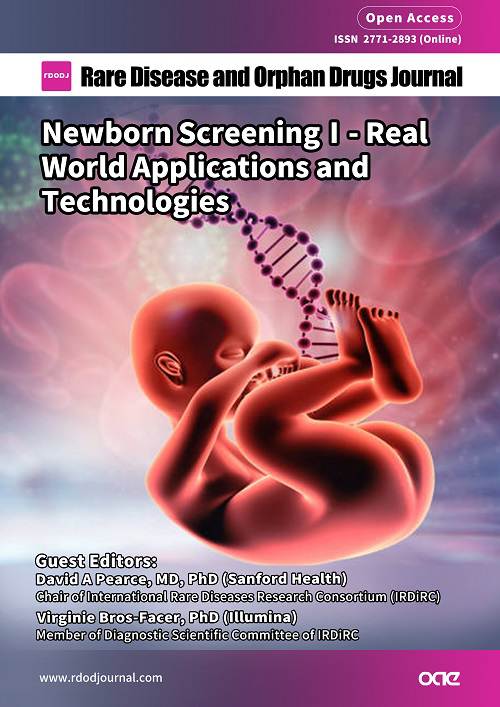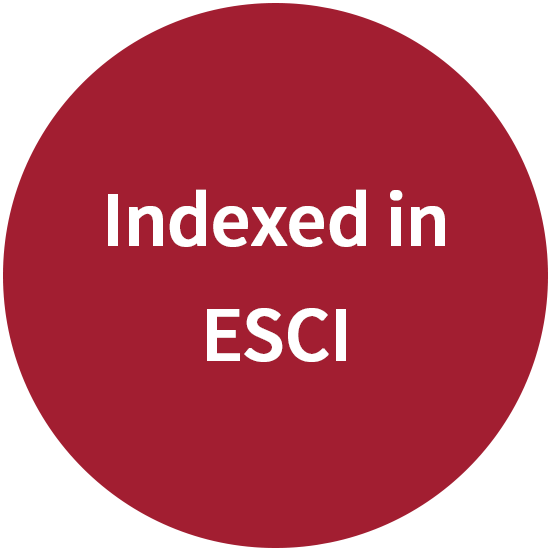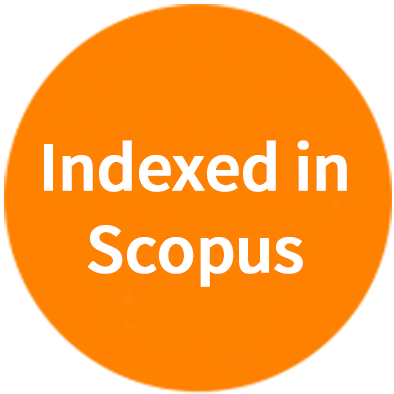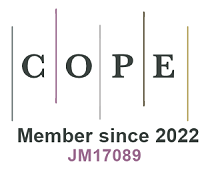
Topic: Newborn Screening I - Real World Applications and Technologies
A Special Topic of Rare Disease and Orphan Drugs Journal
ISSN 2771-2893 (Online)
Submission deadline: 31 Oct 2023
Guest Editors
Prof. David A Pearce
Department of Pediatrics, Sanford School of Medicine, University of South Dakota, Sioux Falls, SD, United States.
Special Topic Introduction
Newborn screening (NBS) programs are an integral part of public health systems aiming to identify infants born with childhood-onset, mostly rare disorders and initiate early intervention to improve their quality of life. Current traditional NBS programs rely on biochemical methods, and the introduction of tandem Mass Spectrometry has enabled the addition of diseases to be screened through National NBS programs. Despite these efforts, there is a significant disparity in the number of diseases screened through these programs across the world, from less than a handful in some countries to several dozens in others.
During the last two decades, technological advancements have driven the expansion of NBS pilot programs with the development of fast and accurate next-generation sequencing (NGS) technologies. NGS has opened the door to a range of possibilities in the field including, not only wide-scale implementation for confirmatory testing, but also as first-tier analysis of numerous genes associated with many genetic disorders, that can be treated presymptomatically and screened in a single test. Furthermore, with the increasing development of therapeutic strategies for rare diseases, there is an urgent need to enable the addition of diseases to be screened in a fast and efficient manner.
NGS has the potential to improve the diagnostic and prognostic utility of NBS and could enable progressive and future methodological standardization of NBS programs, leaning towards a more equitable healthcare across the world. Although true harmonization of NBS programs remain out of reach today, there is a significant potential to improve current programs so that more children and families could benefit from screening in the future.
Several pioneering initiatives in the USA, Europe, Australia, and China, are aiming to pilot NGS in NBS programs, and each initiative is designed to address specific challenges. Currently, there is not a single perfect approach which can be replicated and implemented worldwide. Each initiative has its own merit as it addresses national and/or regional needs based on piloting the technical feasibility and demonstrating clinical utility within a specific healthcare system. Concerns related to the use of these novel technologies are being addressed, including but not limited to, technical, medical, economical, ethical, and sociological aspects. These pilots do not seek perfection nor harmonization from the get-go but aim to improve the current traditional NBS programs.
The Rare Disease Research Community has a collective responsibility to aim towards a future healthcare that is more equitable and accessible. Hence, the International Rare Disease Research Consortium (IRDiRC) and an extended group of experts got together to shed light on this field, increase visibility of ongoing efforts, highlight current and future potential to expand NBS using NGS technologies and provide concrete opportunities to further the development of real-world applications for the benefit of rare disease patients and their families. Because, yes, according to Wilson and Junger as well as public health authorities the child should be the primary beneficiary of NBS, and rightly so but should you ask families who have a child with a rare disease, they will most likely tell you: it affects us all.
During the last two decades, technological advancements have driven the expansion of NBS pilot programs with the development of fast and accurate next-generation sequencing (NGS) technologies. NGS has opened the door to a range of possibilities in the field including, not only wide-scale implementation for confirmatory testing, but also as first-tier analysis of numerous genes associated with many genetic disorders, that can be treated presymptomatically and screened in a single test. Furthermore, with the increasing development of therapeutic strategies for rare diseases, there is an urgent need to enable the addition of diseases to be screened in a fast and efficient manner.
NGS has the potential to improve the diagnostic and prognostic utility of NBS and could enable progressive and future methodological standardization of NBS programs, leaning towards a more equitable healthcare across the world. Although true harmonization of NBS programs remain out of reach today, there is a significant potential to improve current programs so that more children and families could benefit from screening in the future.
Several pioneering initiatives in the USA, Europe, Australia, and China, are aiming to pilot NGS in NBS programs, and each initiative is designed to address specific challenges. Currently, there is not a single perfect approach which can be replicated and implemented worldwide. Each initiative has its own merit as it addresses national and/or regional needs based on piloting the technical feasibility and demonstrating clinical utility within a specific healthcare system. Concerns related to the use of these novel technologies are being addressed, including but not limited to, technical, medical, economical, ethical, and sociological aspects. These pilots do not seek perfection nor harmonization from the get-go but aim to improve the current traditional NBS programs.
The Rare Disease Research Community has a collective responsibility to aim towards a future healthcare that is more equitable and accessible. Hence, the International Rare Disease Research Consortium (IRDiRC) and an extended group of experts got together to shed light on this field, increase visibility of ongoing efforts, highlight current and future potential to expand NBS using NGS technologies and provide concrete opportunities to further the development of real-world applications for the benefit of rare disease patients and their families. Because, yes, according to Wilson and Junger as well as public health authorities the child should be the primary beneficiary of NBS, and rightly so but should you ask families who have a child with a rare disease, they will most likely tell you: it affects us all.
Dr. Virginie Bros-Facer
Submission Deadline
31 Oct 2023
Submission Information
For Author Instructions, please refer to https://www.oaepublish.com/rdodj/author_instructions
For Online Submission, please login at https://www.oaecenter.com/login?JournalId=rdodj&IssueId=rdodj2310311270
Submission Deadline: 31 Mar 2023
Contacts: Yuna Ding, Assistant Editor, [email protected]









